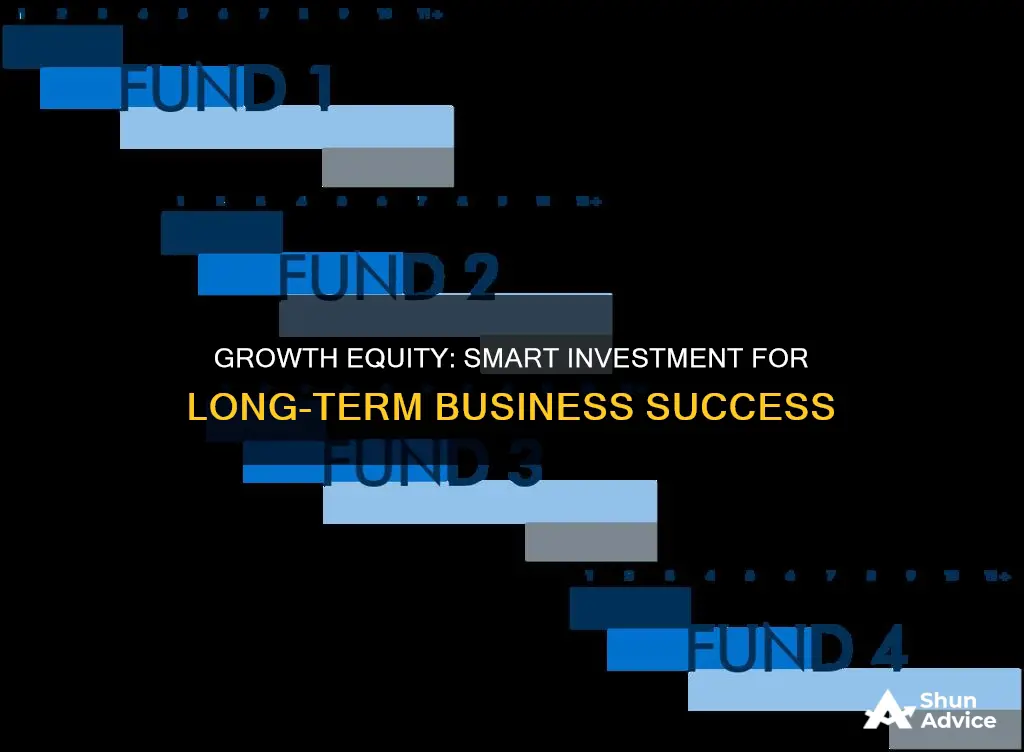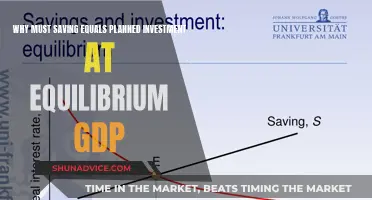
Growth equity is an investment strategy that focuses on acquiring minority stakes in mature companies that are experiencing rapid growth and have proven business models. These companies are usually privately held and often referred to as growth capital or expansion capital. They are typically in the high-growth phase and need funding to support their expansion plans, enter new markets, or boost revenues and profitability.
Growth equity firms seek to invest in companies with strong revenue growth, positive cash flow, and a clear target market. They prioritize long-term growth and expansion potential over short-term profits and often provide operational resources and strategic guidance to help portfolio companies improve their operations and increase their value.
Compared to venture capital and private equity, growth equity offers a different risk-reward profile, with a focus on accelerated operational improvements, revenue growth, and low leverage. It is an appealing addition to a well-diversified portfolio and has evolved into a distinct asset class.
What You'll Learn
- Growth equity offers the chance to invest in fast-growing, established businesses
- It has an attractive risk-reward profile
- It offers a collaborative relationship with management teams
- It provides an opportunity to invest in proven products and business models
- It has a lower holding period than venture capital

Growth equity offers the chance to invest in fast-growing, established businesses
Growth equity is an appealing form of investment as it offers the chance to invest in fast-growing, established businesses. This means that investors can put their money into companies that are experiencing rapid growth and have proven business models, products, and customer bases.
Growth equity firms seek to invest in companies that are already successful and have strong revenue growth and business momentum. These companies are often in the process of disrupting existing products or services in established markets and are looking to expand their operations, enter new markets, or make acquisitions to boost their revenues and profitability.
By investing in these types of companies, growth equity investors can benefit from the high growth potential and moderate risk of the investments. The companies targeted by growth equity firms have typically moved past the early-stage classification and have strong upside potential in terms of revenue growth, obtainable market share, and scalability.
Growth equity is often described as occupying the middle ground between venture capital and traditional leveraged buyout strategies. It provides an opportunity to invest in companies that are more mature than those targeted by venture capital firms but may not have the stable cash flows and lower growth rates typically associated with leveraged buyouts.
Overall, growth equity offers an attractive risk-reward profile by allowing investors to put their money into fast-growing, established businesses with strong upside potential.
Waste Management: A Smart Investment for a Greener Future
You may want to see also

It has an attractive risk-reward profile
Growth equity has an attractive risk-reward profile for several reasons.
Firstly, growth equity investments tend to be made in companies that have already proven their business models and demonstrated strong revenue growth and business momentum. This means that, compared to venture capital investments, growth equity deals are generally considered to be less risky. While venture capital investments carry a high level of risk due to market and product risks, growth equity companies typically operate in established and mature markets with commercially viable products.
Secondly, growth equity investments offer the chance for high growth potential with moderate risk. Growth equity firms invest in companies that are experiencing rapid growth and have the potential for dramatic growth, often in sectors growing faster than the overall economy. This growth is fuelled by the investment, which is used to expand operations, enter new markets, and make acquisitions, all of which boost the company's revenues and profitability.
Thirdly, growth equity investments usually involve minority ownership stakes, meaning that investors can benefit from the growth of the company without needing to take on the risks associated with controlling stakes. This also means that the original owners of the company will not be required to give up control.
Finally, growth equity investments have a unique risk-return profile compared to other investment strategies. With a focus on accelerated operational improvements and revenue growth, low leverage, and downside protection, growth equity offers an appealing addition to a well-diversified portfolio. The lack of financial leverage allows these businesses to be more flexible and mitigates risk for the fund manager.
India's Investment Bankers: A Comprehensive Overview of Their Numbers
You may want to see also

It offers a collaborative relationship with management teams
Investing in growth equity offers a collaborative relationship with management teams. Unlike private equity, growth equity investors typically take non-controlling, minority stakes with limited governance rights. This means that the owners of the company will not be required to give up control.
Growth equity firms usually cultivate a friendly and collaborative relationship with management teams to win the deal and gain influence. This is often the opposite of the dynamic between private equity and their management teams. Private equity firms usually purchase a controlling stake and can have a contentious relationship with management.
Growth equity investors work with the company to boost its growth and increase its value. They offer strategic guidance and can help with talent enhancement, strengthening the team by hiring key executives or improving current management skills.
Growth equity investors must be proactive when sourcing deals as many companies do not need to raise capital. They use a "cold calling" approach, with team members reaching out to build a relationship, gain a better understanding of the company's operations, and determine whether the company is open to taking institutional capital.
Growth equity managers tend to focus on industries that exhibit rapid expansion, such as technology, healthcare, business services, and financials.
India's Strategic Investments in Africa: Rapid Expansion
You may want to see also

It provides an opportunity to invest in proven products and business models
Investing in growth equity provides an opportunity to invest in proven products and business models. Growth equity firms invest in companies that have already proven their business models and value propositions. These companies have established products or services with existing customers and are looking to expand their operations, enter new markets, or boost revenues and profitability.
Growth equity firms seek to acquire minority stakes in companies that have demonstrated strong revenue growth and business momentum. They target companies with a proven track record of success and the potential for further growth and expansion. This means that the companies have already de-risked significantly since their early venture fundraising rounds and still have significant upside potential.
By investing in proven products and business models, growth equity firms can be more confident in the potential for success and can focus on scaling the company and driving further growth. They can also provide operational improvements, strategic guidance, talent enhancement, and technology advancements to help the company grow and increase its value.
Additionally, growth equity firms can benefit from the strong financial performance of these companies. Companies targeted for growth equity investments typically have positive cash flow or profitability and do not require further fundraising rounds or dilution until after the exit. This provides a more stable investment opportunity with a lower risk profile compared to early-stage venture capital investments.
Overall, investing in growth equity provides an opportunity to invest in companies with proven products and business models, allowing for more informed investment decisions and a potentially lower risk profile.
Protecting Equity Investments: Lawsuit-Proof Your Portfolio
You may want to see also

It has a lower holding period than venture capital
Growth equity is an appealing form of investment because it offers the chance to invest in businesses that are fast-growing and established enough to allow quantitative analysis and financial modelling. Compared to venture capital, growth equity has a lower holding period, typically between 3 and 7 years, while venture capital investments average 5 to 10 years. This is because early-stage companies require more time to realise their potential relative to more mature companies.
Growth equity firms invest in companies with proven business models and strong product-market fit, whereas venture capital firms invest in companies without any customers or proof of positive unit economics. Growth equity firms take on "management" or "execution" risk, whereas venture capital firms take on "market" and "product" risk."
Growth equity firms also tend to have a more collaborative relationship with management teams, as they usually cultivate a friendly relationship to win deals and gain influence. In contrast, private equity firms often have a contentious relationship with management as they purchase a controlling stake in the company.
Growth equity investments are also considered to have a more moderate risk profile compared to venture capital. While venture capital deals come with a high level of risk due to market and product risks, growth equity deals are considered to have moderate risk. This is because companies targeted by growth equity deals generally operate in established and mature markets with commercially viable products.
Overall, the lower holding period of growth equity compared to venture capital is advantageous as it allows investors to realise their investments more quickly and take advantage of the attractive risk-reward profile of investing in fast-growing, established companies.
Lucrative Investment Management Salaries: What You Need to Know
You may want to see also
Frequently asked questions
Growth equity is an appealing form of investment because it offers the chance to invest in fast-growing businesses that are established enough to allow quantitative analysis and financial modelling.
Growth equity offers an attractive risk-reward profile. Companies have usually de-risked since their early fundraising rounds, have strong momentum, and still have significant upside remaining.
Growth equity capital can be an attractive fundraising option for entrepreneurs as investors typically take non-controlling, minority stakes with limited governance rights. Owners are therefore not required to give up control of their business.
An ideal business for growth investing would have a validated value proposition, a clear target market and customer profile, and a business plan focused on growth rather than immediate profitability.







